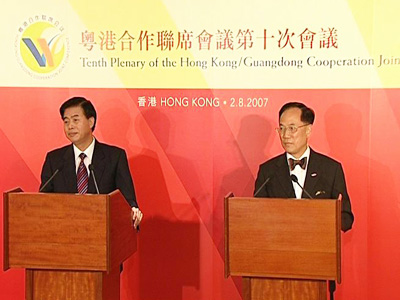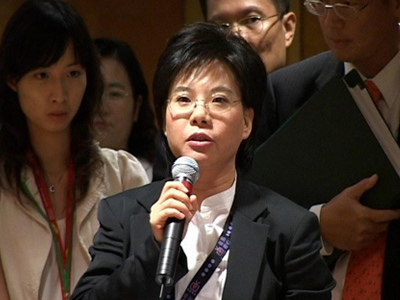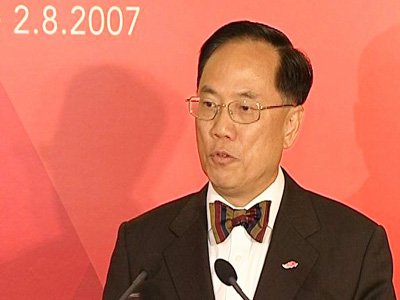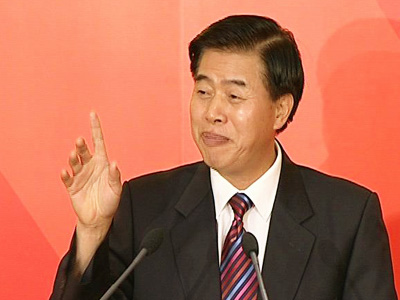|
3 August 2007
Hong Kong-Guangdong Cooperation Joint Conference Holds Press Briefing
Dim Sum TV Makes First Public Appearance Questioning Officials
The Tenth Plenary Session of the Hong Kong-Guangdong Cooperation Joint Conference ended on 3rd August, with the two governments signing six new cooperation agreements. Hong Kong Chief Executive Donald Tsang and the Governor of Guangdong, Huang Huahua, said the conference was very successful and the two parties made concrete progress on environmental agreements, but they both expressed hope that progress can be made faster in the future.
After the meeting, Huang and Tsang held a joint press conference. Dim Sum TV was one of the three media outlets selected to ask questions. This marked the first time Dim Sum TV was seen actively interviewing Hong Kong government officials. Dim Sum TV reporters asked the officials to describe more specific objectives planned to deepen the cooperation between Hong Kong and Guangdong in terms of tackling environmental issues.

Press conference held after the 10th Plenary Session of the Hong Kong-Guangdong Cooperation Joint Conference

Ms. Lam Wai Ping, DSTV reporter, was selected to ask question to Mr. Donald Tsang and Mr. Huang Huahua.
Mr. Tsang said one of the most important objectives for Hong Kong and Guangdong is to attain a promised reduction in emissions by 2010. He added that the adoption of a plan for after 2010 is another high priority. Tsang also emphasized that improving the environment is an important task for the SAR government, saying that air and drinking water quality needs to be improved, and solid waste emissions reduced. He expressed hope that there would be obvious improvement in environmental protection by the end of his term.

Huang said Guangdong is adopting six policies to monitor the environment, including the development of new industries that have low energy consumption. The government will also legislate high-pollution, low-efficiency industries, and may even ban projects that produce high-pollutant water emissions. Huang also said the government will speed up the process to discontinue the use of heavy-polluting equipment, and will adjust the distribution of industries by zoning the province into three main areas – a conservation area, a restricted conservation area and a developing area.
Huang also said that Guangdong already has an environmental monitoring network in place that covers the entire province. He emphasized that Guangdong has, in cooperation with Hong Kong, created the most advanced pollution-monitoring network in the world, with 16 stations spread across the Pearl River Delta producing reports daily.

During the press conference, Tsang also announced that the Lok Ma Chau Spur Line, the second border crossing between Hong Kong and the mainland, will open on 15th August. It is intended to lighten the traffic flow at the Lo Wu border crossing.
|

